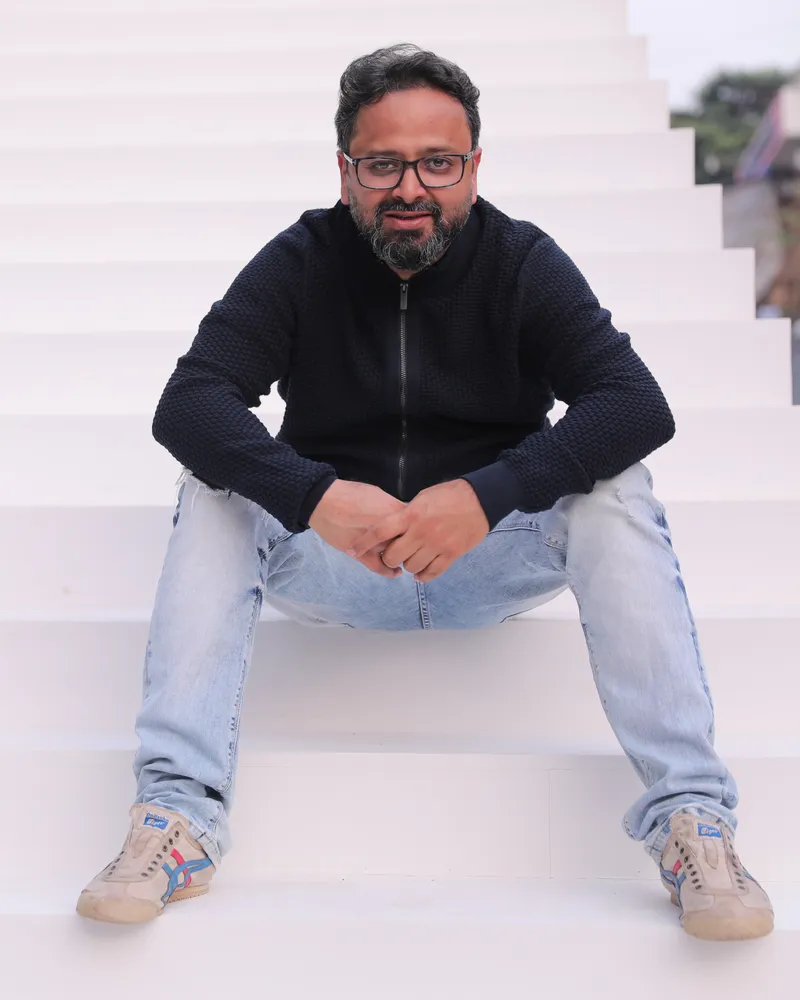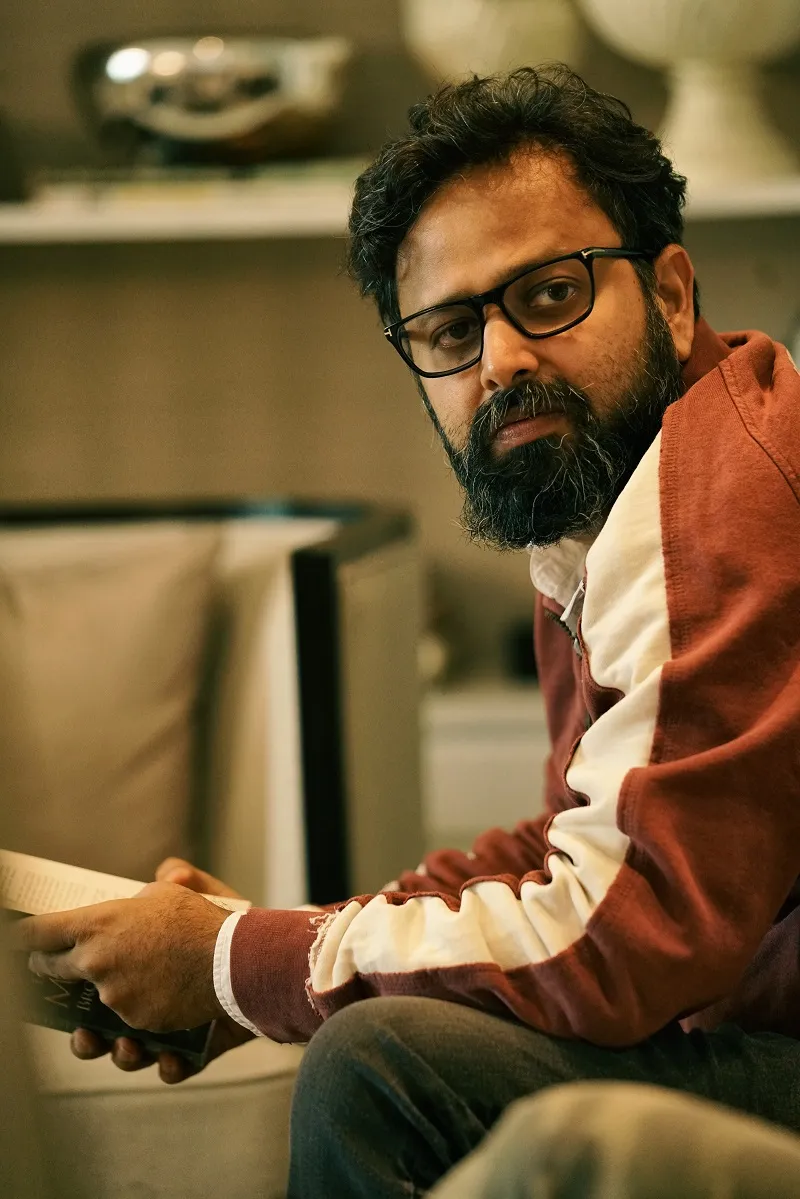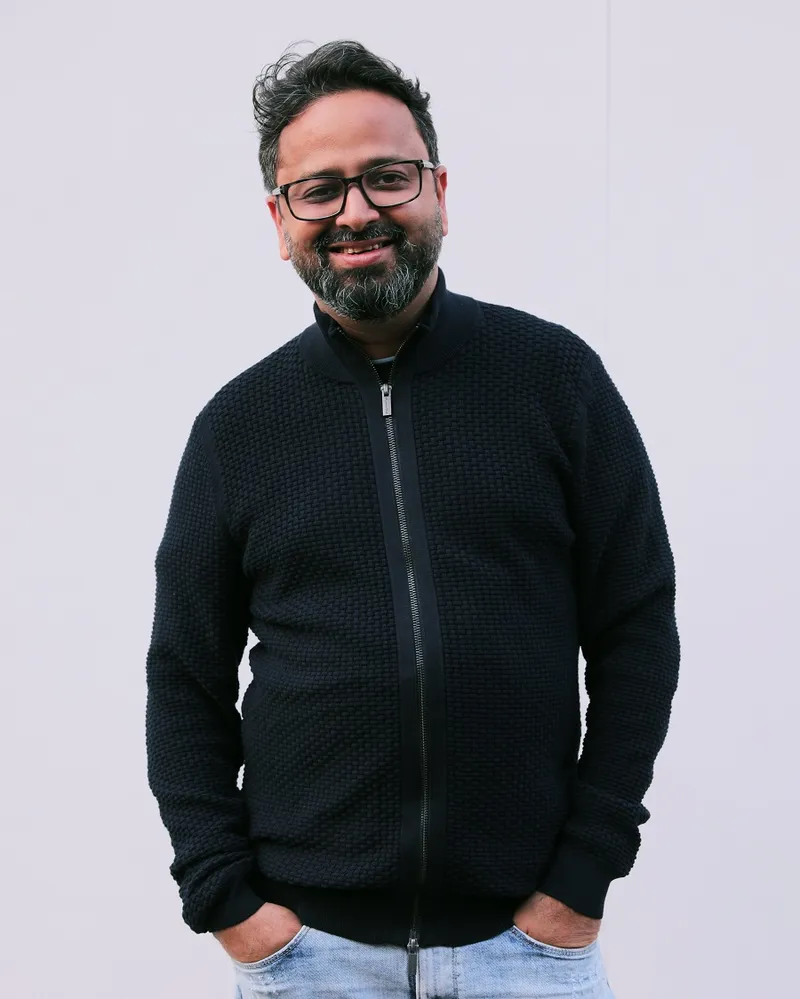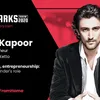Director-producer Nikkhil Advani on why every filmmaker is also an entrepreneur, and the hangover he fears
Bollywood film producer, director, and screenwriter Nikkhil Advani gets candid with Weekender on starting as an outsider in the film industry, his evolution over the years, launching Emmay Entertainment, and dealing with post-production hangover.
Film producer, director, and screenwriter Nikkhil Advani is a known face in the Bollywood film industry today. Before making a noise with his directorial debut, Shah Rukh Khan-starrer Kal Ho Na Ho, Nikkhil assisted the likes of Karan Johar and Aditya Chopra.
Nikkhil started his career in the film industry as an assistant director to Sudhir Mishra for Iss Raat Ki Subah Nahi in 1996. Later, he assisted Karan Johar in Kuch Kuch Hota Hai (1998) and Kabhi Alvida Na Kehna (2006), and Aditya Chopra in Mohabbatein (2000).

Nikkhil Advani, Film producer, director, and screenwriter
Nikkhil directed numerous other films, including Salaam-e-Ishq, Chandi Chowk to China, Jaane Kaha Se Aayi Hai, and Patiala House, before taking the entrepreneurial route.
A decade back, he, along with sister Monisha Advani and Madhu Bhojwani founded Emmay Entertainment and Motion Pictures LLP in 2011. The content production company began its journey with full-length feature films and gradually expanded to television, short-films, telefilms, and digital content.
Some of Emmay Entertainment’s notable works include D-Day, Hero, Airlift, Satyameva Jayate, and Batla House, among others. It’s upcoming project, a web series, Mumbai Diaries 26/11, is reported to launch on Amazon Prime this month. It stars actors Konkana Sen Sharma and Mohit Raina.
In an exclusive interview with YS Weekender, Nikkhil gets candid about starting as an outsider in the film industry, his evolution over the years, starting Emmay Entertainment, and dealing with post-production hangover.

Nikkhil on the sets of Satyameva Jayate 2 | Source: Twitter
Excerpts from the interview:
YS Weekender (YSW): You come from a family that has no association with the Bollywood film industry. What made you take to film-making?
Nikkhil Advani (NA): I'm the product of middle-class upbringing in the 70s and 80s. Going to the cinema, purchasing tickets in black from touts, eating soggy masala popcorn, sitting on foldable make-shift chairs in the aisle only to catch a few hours with our reel hero Amitabh Bachchan, was the ultimate reward for doing well in exams or winning medals in sports.
Those were simple joys that translated into what then seemed like an unattainable dream - to work in the films. I guess I also had a flair for spinning yarns and storytelling, marvelling my friends with fantastical tales. Looking back, I should have known how my life would turn out.
YSW: What was the turning point of your career? Were your parents supportive of the idea?
NA: Having graduated with a B.Sc in Chemistry from St. Xavier’s College, I was in the process of securing admission to universities in the US, when my then-girlfriend, now-wife and partner for life, Suparna Gupta, triggered some soul-searching discussions.
I knew I wanted to direct; and I knew I lacked formal training. But I knew I had to give the struggle a shot.
Somewhere the cushion of an education to fall back on made the decision easier. My late mother, an advertising professional, was almost instantly supportive. My father, an engineer by qualification and a pharma professional, took some time to be convinced that I was on the right path.
YSW: How have you seen yourself evolve over the years - from directing Kal Ho Na Ho to now a web-series? What are the few changes that you have undergone in both your personal and professional life?
NA: The struggle is real. Make no mistake. And it is eternal.
In varied degrees at different times, everyone in this industry has a journey where they pay a price, hoping for more and settling for less. It sounds philosophical.
After almost three decades in this field, I can tell you that every morning I wake up to the same struggle, and hope that the compromises I need to make as a director, as a writer, as a producer, are somewhere mitigated by the alibi of past successes. Sometimes it all comes together, sometimes it doesn’t. The key is to keep going on.
For me personally, the big win has been that over time, I have earned the right to have my own voice as a filmmaker, to balance the compromises to fulfil the needs of my company while also being allowed to indulge my wants. On ground, the role played by technology in transforming how we make our films and shows, and how we reach our audiences, fascinates me.
I am an eternal learner. Humility to accept you don’t know everything, is most critical to survive the struggle, the journey.

YSW: What led to the inception of Emmay Entertainment? What do you aspire to do through your production house?
NA: I was driven by two goals. After parting ways with Dharma Productions, I kept seeking a production partner who embodied the vision and strengths of my mentor, the late Yash Johar. No one came close. To channel my experiences and learnings from him became the first goal.
The second goal: I wanted to create a campus-like workplace where first-time-out, yet-to-succeed directors could find a launch pad. To realise these goals, I knew I could not do this myself. Fortunately, around the same time, my sister, Monisha Advani, and our childhood friend, Madhu Bhojwani, had just exited a very successful corporate HR business through an acquisition. They had no exposure to the film business. However, they were highly regarded for their business acumen and integrity in the corporate world. It seemed like an unlikely match at the time. A decade later, I think the three of us feel it was meant to be.
YSW: Where do you seek inspiration from for your movies?
NA: I read a lot. I also observe the world around me. I am blessed with strong personalities for friends and family.
Conversations around politics and human rights is commonplace in my daily diet. All this forms a repository of information that I have access to. Eventually, it all comes down to human stories, where emotions are triggered, outcomes are fascinating.
Reflecting on the body of work I’m most proud of, it somewhere echoes the cause of the underdog, whom I try to champion in the films we make.

YSW: Most of your films are based on real-life events. How do you manage to merge the real and the reel - the fiction with the reality?
NA: One of my biggest learnings has been to recognise the often-underestimated intelligence of our audiences. Without intending to sound patronising, the worst words we can say as creators, is ‘dumb down’ the content.
I think while the grammar can be modified in storytelling, the essence of authenticity, even in fiction, is something audiences look for, and can sense when it is absent.
Authenticity, for me, can be found even in fantastical, larger-than-life stories -- where superheroes come together to fight a villain whose motivation is to punish a planet of inhabitants who have run amuck, causing natural disasters of herculean proportions.
Closer to home, I drive my content development team to extensively research premises, engage subject matter experts where necessary and possible. Interestingly though, when my writers Ritesh Shah and Suresh Nair wrote D-Day, we did a fact-check post locking the script. Former Chiefs of RAW were consulted in the process and they found it incredible how close we were to the real facts on the ground. The coincidence was chilling. It somewhere vindicated that life and art do imitate one another!
YSW: Do you tend to get very involved with the films that you make? If yes, how do you deal with the post-production hangover?
NA: Accountability to all our stakeholders is the primary driver. First, to the audience, who buy tickets and subscriptions to watch the content we create, then the funders and platforms. Next, our cast and crew. And finally, my partners and home team. Each second of cinema or web shows needs to justify the expectations of each of these beneficiaries. So yes, I am completely involved to the extent that I ensure we are delivering on these promises.
However, being a director myself, I am extremely conscious of not imposing my creative vision or interpretation on other directors. My advice is there for them to consume, apply, or discard.
The best analogy I can give to explain my presence is that rails in a bowling alley that come up to avoid the ball from going into the gutter and coming as close as possible to a nine-pin strike!
Early misses and failures have taught me one thing - to not rest on the laurels of a Friday, nor drown in the disappointment it can bring. My team and I work from Monday to Monday, which gives us a sense of being committed to creating a workflow that goes beyond the arrogance of an individual project, to ensure we put our teams to work every day, to grow those teams, to keep scaling and building. The only hangover I fear is not having work.

YSW: What were the few challenges of shooting Mumbai Diaries?
NA: Mumbai Diaries has been a passion project for me personally. Having lived through the ordeal as an affected citizen, the chilling events have never mitigated in impact. The DNA of my city has been lauded, dissected, even chastised for being transactional for the manner in which it resiliently bounces back to normalcy.
When I conceived this show, I wanted to highlight that our exterior often masks the inner demons and human challenges we face, living through the pace and problems of life in Mumbai. Little did I realise that the very same first responders we are highlighting in our show, would become the spine of the battle against COVID-19.
Production-wise, I am grateful that Amazon Prime backed my vision and that has enabled us to recount the events of 26/11 through a very different set of lenses. Fortunately most of the show was shot pre-COVID-19 and we are now waiting at the starting gates to share this with audiences.
YSW: What are your plans with Mumbai Diaries? What is the message that you want to convey through the web series?
NA: I believe the objective of every work of art, content, is to entertain. That is also the objective of Mumbai Diaries 26/11. Somewhere along the way, I hope it will make us recognise the untold un-celebrated human stories of our first responders who actually make Mumbai the maximum city that never sleeps.
YSW: How has directing a web series been different from directing a movie?
NA: Directing a film versus directing a show can be likened to running a sprint versus a marathon.
Both are physically and mentally challenging, but they make a different ask in terms of inputs from the athlete. I do not believe I have a playbook to refer to or one that I can finitely say works. It is a constant learning process and the feedback systems in place for reading the consumer are only getting more and more refined.
It is fascinating to see how science is leading art in current times.
YSW: How do you think film direction and production are similar to entrepreneurship?
NA: Entrepreneurship is about identifying a consumer need that is yet to be served; finding an innovative way to maximise available inputs to create an optimum output that triggers action from that consumer. It is a horizontal that is applicable to every aspect of life, to varying degrees.
A filmmaker is therefore an entrepreneur too. How good an entrepreneur you are really depends on the report card of our output.
YSW: Do you think the hype OTT has received in the last one year will affect how India consumes entertainment in the longer run?
NA: OTTs or OCCPs are not a hype. It would be shallow for us to see any form of technology that has managed to directly impact over five billion consumers worldwide as a hype. It is a form of infrastructure, akin to roads that take us physically to different destinations, depending on our needs and desires.
I believe it is transformative in that personal device consumption now captures over 70 percent of mindshare of the five-billion population. As content creators, we must appreciate the shrinking of the six degrees of separation between ourselves and our consumers. Place a value on the feedback of choices made that artificial intelligence sends our way. And start telling stories in ways that we have the maximum impact.
The pandemic has altered the way we shop, the way we travel and the way we work. But mostly, it has changed the way we seek entertainment. This is habit forming.
As storytellers, this is a renaissance of sorts, to be able to, like water, take the shape of so many diverse formats this infrastructure allows us.
YSW: What next for you - what are the other films in your pipeline?
NA: In 2021, watch out for Mumbai Diaries 26/11, Sardar Ka Grandson, Satyameva Jayate 2, Bell Bottom, Mughals, Rocket Boys, and Kaun Banegi Shikharwati.
Emmay Entertainment is 10 years old. We are proud of what we have achieved and grateful to the audiences that allow us to keep coming back to work every day. It’s a Monday today and I can tell you this - there are movies being made, web series being shot and stories being developed. This is the decade we hope to grow up!
Edited by Teja Lele









